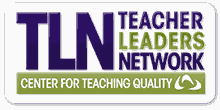I am back on my 'accountability' soapbox today. The answers to my questions are multi-faceted and complex to be sure, and I don't expect they will ever be answered. Nevertheless... they long to be asked:
What accountability for excellence do we instill in our students? At a young age, children learn that failing grades does not mean they will be held back. They see disruptive students rule the school with their distracting behaviors. Unless you are a student who faces consequences at home for poor performance at school, most likely, they fall through the cracks.
Sure, there are exceptions, those rare children who want more than is expected of them, work to better themselves, strive to please their teachers, just out of sheer intrinsic motivation. It seems as time goes by, these children are rarer and rarer. The norm is becoming the coaster, the kid who shows up, does just enough not to get too much grief, but does not exert enough effort to actually experience success.
What accountability is there for parents in their child's education? We've become quick to blame the school and the teachers for students not making the grade. And to be sure, much of the responsibility does and should fall upon their shoulders. However, school is a small portion of child's life. All the knowledge a child must learn cannot be imparted in this small percentage of time. Students are in school about 50% of the days of the year, and about 30% of the hours in a day. Not even 15% of a student's life is spent in school but teachers and schools are being held 100% accountable for 100% of their education.
Some interesting points to consider:
"Children who have not already developed some basic literacy practices when they enter school are three to four times more likely to drop out in later years." (National Adult Literacy Survey, 1993)
“Children must have access to books if they are to read. But books in themselves are simply not enough. Children also need to have a caring adult read to them and talk to them, preferably every day.” (Starting Out Right: A Guide to Promoting Children’s Reading Success, National Research Council, National Academy Press, 1999.)
Perhaps we need an entrance exam INTO school. If parents do not have their child 'ready', that child will not be allowed into school. How's that for breaking tradition? Doesn't it only seem fair that if a child is not prepared for school, his parents ought to be held accountable, since once he enters school, all the responsibility falls upon the school?
Once in school, parents will be held accountable for their child's attendance and skill maintanence over breaks, particularly summer vacation. If your child misses too much school, bam, they are gone. If they lose skills over the summer, bam, they don't come back until you bring them back up to speed.
Wouldn't that revolutionize the entire way we view parenting and education? Would it change things or create a generation of uneducated children? I am not sure.... I just know then some of the blame and responsibility would shift.
What responsibility do schools have to remove ineffective teachers? More than they are accepting now... With the current union systems in place in many states, and the heavier and heavier reliance on high stakes test scores to evaluate students and teachers, education is frought with disasterous situations. Teachers are being judged by a one snapshot view of their students instead of being held accountable for day to day instruction, classroom management and growth. Unions protect the good, bad and ugly, with little regard for what is truly in the best interests of students.
Educators need to step forward and become responsible for their own profession, policing each other, ensuring that each child gets a quality educational experience in EVERY classroom EVERY day.
There is enough blame for our failing students to go around... let's stop throwing the blame and start fixing the problems!
Thursday, March 18, 2010
Subscribe to:
Post Comments (Atom)









1 comment:
I completely agree with you how parents shoud be held more accountable in their child's life. I am finding out, as a first year teacher, that parents rather be their kid's friend than a parent.
If that's not the case then parents are too addicted to their crackberries or IPhones and rather play with that then communicate with their own kids.
Post a Comment